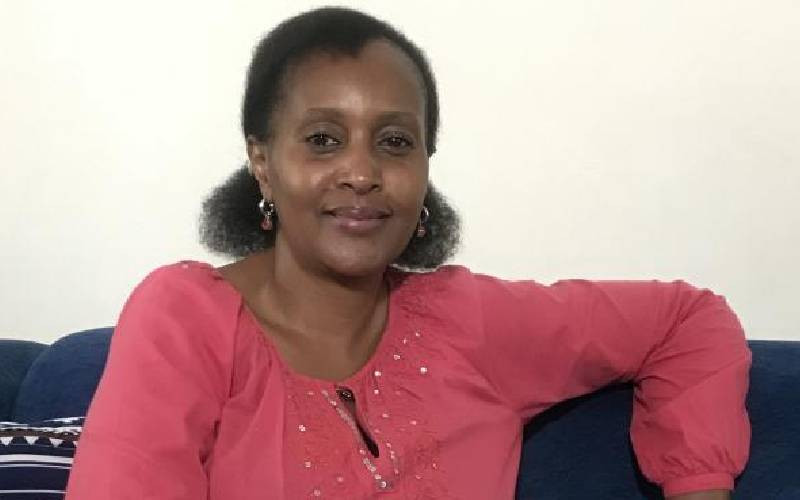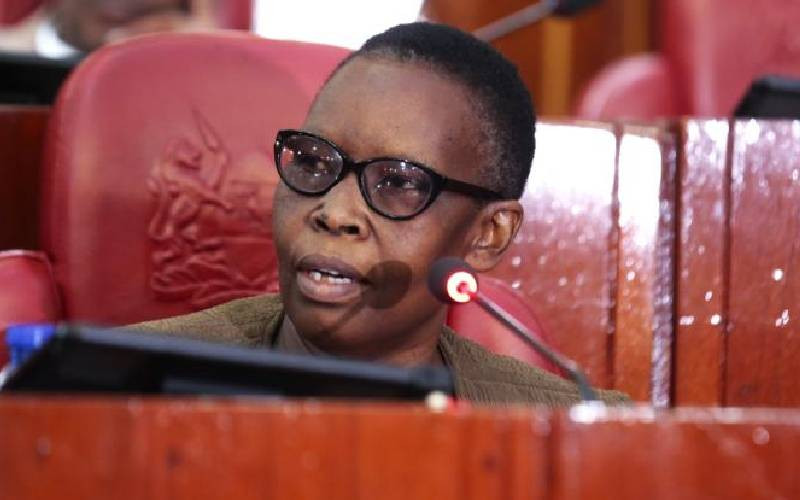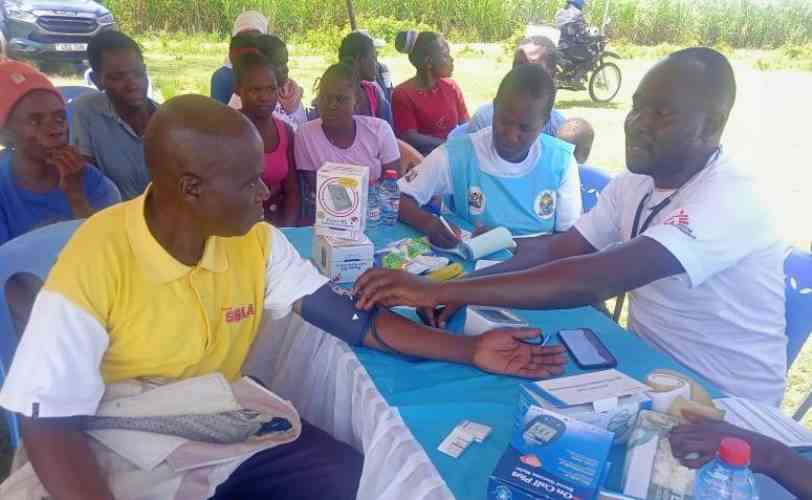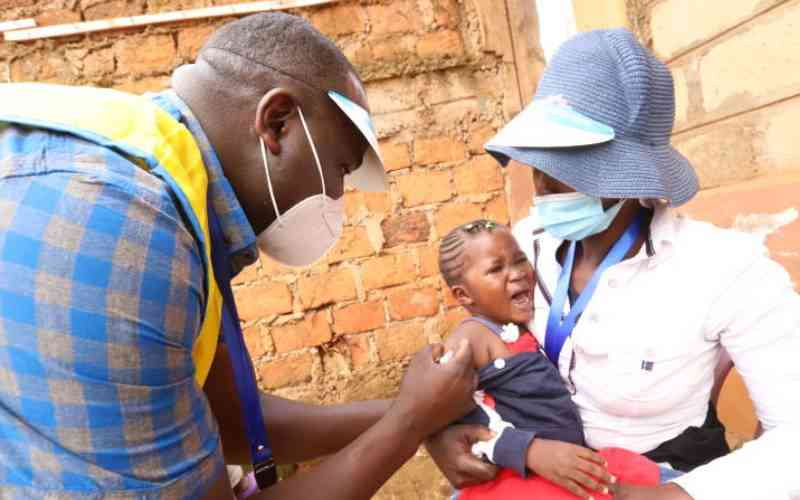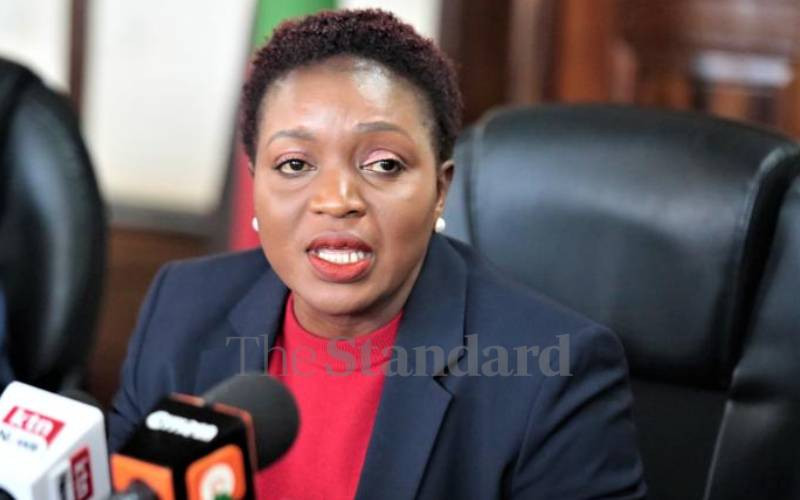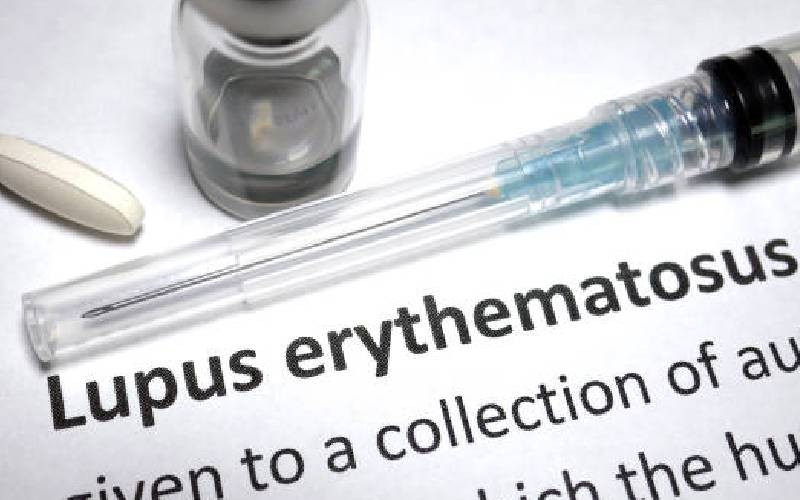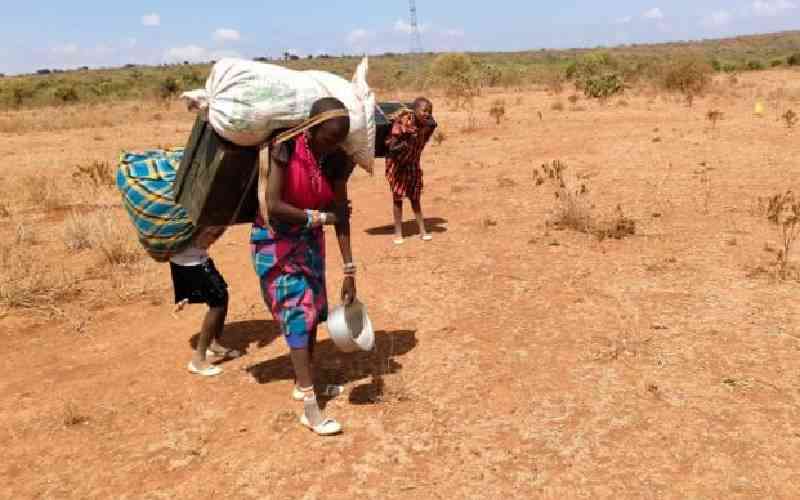
Battling blood cancer has taken a toll on Joseph Waititu. As it eats away at his physique, weakening him, the disease has also ravaged his family’s finances.
Waititu is scheduled to undergo eight chemotherapy sessions per month. This alone costs him approximately Sh500,000 every month. After every chemotherapy session, he is put on drugs that cost Sh80,000 which last for eight days.
The 26-year-old man from Murang’a County was diagnosed with leukaemia in February last year. He had just completed his civil engineering degree at Karatina University.
To enable him to access quality care at the Kenyatta National Hospital (KNH), he moved in with his aunt at Utawala Estate, Nairobi.
Waititu depends on his parents who engage in casual jobs to raise money for his medical bills. He also has the National Health Insurance Fund (NHIF) card through which the insurer should pay half of his treatment cost.
Despite his challenged physical state, he helps his aunt sell vegetables in Utawala as she looks for casual jobs in other parts of Nairobi.
Costly treatment
- Scientists unveil discovery in bowel cancer research
- New tech can detect tumours previously too small to be seen
- Cancer patient stranded in Abu Dhabi to be evacuated
- New therapy launched to combat lung cancer and improve patient outcomes
Keep Reading
“I did not expect treatment would be so costly. I have applied for mobile loans from almost all platforms. I am no longer eligible for more. My parents have sold land, and property to cater for my treatment, but still the money is not enough,” says Waititu, the first of three siblings.
“My life revolves around the hospital. I get to a point of giving up, but I look at my parents…the struggle they put to see me recover, and I stand strong,” he adds.
Waititu’s painful journey battling cancer is not an isolated case. It mirrors the state of cancer treatment in the country and how thousands of Kenyans struggle day by day to access healthcare.
Mary Andavwa from Bukura in Kakamega County cannot afford treatment after being diagnosed with cervical cancer in 2017.
“At times I default on treatment because I have no money. The government should provide cancer patients with drugs,” Andavwa says.
Her husband, Aaron Obuya, says the disease hurts the family both financially and psychologically.
“I resigned from my job in Nairobi to take care of my wife. Treating cancer is so expensive. I have sold my property to cater for her care, but the money is not enough,” says Obuya.
The Kakamega Cancer Unit which was established in 2018 offers only chemotherapy and palliative care.
Hence, patients like Andavwa are referred to Moi Teaching and Referral Hospital (MTRH) for radiotherapy treatment.
Kakamega County Health Executive, Dr Benard Wesonga, said machines at the unit are old and prone to frequent breakdowns that are expensive to repair.
New equipment
“We require new equipment that will last us for some time because we are spending more money repairing what we have, and even the ones we have are not adequate and very old,” Dr Wesonga said.
To ease the burden of cancer care, the government established regional centres in Mombasa, Nakuru, Nyeri, Kisii and Garissa. But the Nakuru centre is the only one that is fully operational.
Currently, Garissa and Mombasa cancer centres report numerous breakdowns, while the ones in Kisii and Nyeri are yet to be opened for service to the public.
In February, the National Assembly Health Committee put Health CS Susan Nakhumicha to task on why the new centres are not fully functional.
The demand for answers followed a fact-finding mission on the state of cancer facilities in the country by the parliamentary committee.
Nyeri Town Member of Parliament (MP) Duncan Mathenge, also a member of the committee, told The Sunday Standard the biggest health burden reported in Kenya is cancer.
The fact-finding mission by MPs was aimed at enhancing cancer care in the new health scheme - Social Health Authority (SHA) - to cushion Kenyans from the cost of diagnosis and treatment and screening.
The soon-to-be-defunct National Health Insurance Fund (NHIF) does not cover diagnosis.
“Kenyans say if diagnosed with cancer, it is a sure death sentence,” says Mathenge.
The committee found linear accelerator machines in Mombasa and Garissa were faulty, so were the shear and internal cooling systems for radiology in Garissa. Spare parts for the machines cannot be procured locally.
“For three months the machine in Garissa was not in use, and that means patients who were on treatment at the point the machine broke down, the treatment was deteriorated,” said Mathenge.
The Garissa Regional Centre serves patients from Mandera, Marsabit, Isiolo, Tana River, Lamu, and parts of Ethiopia and Somalia.
Coast General Hospital serves cancer patients from Kilifi, Taita Taveta, Kwale, Tana River, lower parts of Makueni, Machakos and Kitui, including parts of Tanzania and Somalia.
Patients in Coastal and Northern parts of the country are therefore flocking KNH for treatment.
Meanwhile, the Nyeri centre that is expected to serve the entire central region is only offering chemotherapy services because its radiology department has not been activated.
The bunkers at the unit have not been constructed and the machines are yet to be procured. The Kisii Centre that is meant to serve Nyanza and Western regions is under construction now at 52 per cent completion.
“Cancer treatment in our country is dilapidated. If a patient requires comprehensive treatment, they are mostly confined to KNH, MTRH and KUTRRH”.
According to Mathenge, none of the three national referral hospitals has more than one accelerator, resulting in long queues.
Apart from lack of the adequate human resource to run the regional cancer facilities across the country, funding is also a problem.
The national government built the centres and provided the machines, whereas counties, where the regional cancer centres are domiciled, were required to pay healthcare workers.
Additionally, counties are meant to purchase consumables together with training of staff. For smooth workflow, the Health committee suggests the national government should support running of the centres with funding and human resource through the National Cancer Institute.
Dr Dulcie Wanda, a Clinical and Radiation Oncologist, says care for cancer patients has been made easy with the commencement of Radiotherapy services at the Nakuru Regional Oncology Centre.
The unit started offering oncology consultation and chemotherapy services in 2018. However, there was a challenge where an average of 10 patients would be referred to either MTRH or KNH for radiotherapy weekly on average.
Because of distance and financial constraints, the majority of the patients would opt not to seek treatment, only to return to the facility when the disease had already progressed.
Dr Wanda says the death of a patient from advanced cancer due to a missed referral distressed her.
“It was really sad working in a clinic and referring patients. I would see tears running down their eyes as they would tell me they have never travelled to Nairobi. Some who had walked for six hours to come to the Nakuru clinic questioned how they would get to Nairobi,” she said.
Dr Wanda says the numbers referred for radiotherapy were high, and to help fight the burden of cancer, Nakuru was selected to be a regional oncology centre that offers oncology reviews, chemotherapy, radiotherapy, nutritional support and psychological counselling.
Data at the unit shows an increased number of patients receiving radiotherapy since its launch by then Health PS Susan Mochache in 2022, to an average of 50 patients daily.
On the rising cancer cases in Kenya, Dr Wanda says it is possible that the cases have been present in the population, but individuals could be misdiagnosed because of lack of modern diagnostic technologies.
 The Standard Group Plc is a multi-media organization with investments in media platforms spanning newspaper print
operations, television, radio broadcasting, digital and online services. The Standard Group is recognized as a
leading multi-media house in Kenya with a key influence in matters of national and international interest.
The Standard Group Plc is a multi-media organization with investments in media platforms spanning newspaper print
operations, television, radio broadcasting, digital and online services. The Standard Group is recognized as a
leading multi-media house in Kenya with a key influence in matters of national and international interest.

